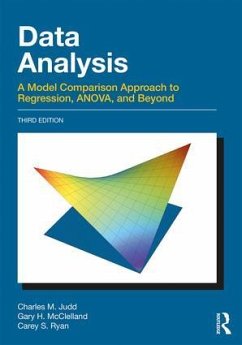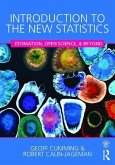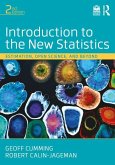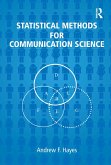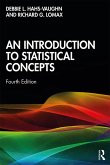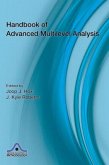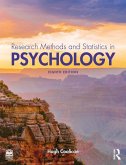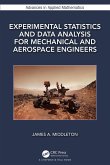Data Analysis: A Model Comparison Approach to Regression, ANOVA, and Beyond is an integrated treatment of data analysis for the social and behavioral sciences. It covers all of the statistical models normally used in such analyses, such as multiple regression and analysis of variance, but it does so in an integrated manner that relies on the comparison of models of data estimated under the rubric of the general linear model.
Data Analysis also describes how the model comparison approach and uniform framework can be applied to models that include product predictors (i.e., interactions and nonlinear effects) and to observations that are nonindependent. Indeed, the analysis of nonindependent observations is treated in some detail, including models of nonindependent data with continuously varying predictors as well as standard repeated measures analysis of variance. This approach also provides an integrated introduction to multilevel or hierarchical linear models and logistic regression. Finally, Data Analysis provides guidance for the treatment of outliers and other problematic aspects of data analysis. It is intended for advanced undergraduate and graduate level courses in data analysis and offers an integrated approach that is very accessible and easy to teach.
Highlights of the third edition include:
a new chapter on logistic regression;
expanded treatment of mixed models for data with multiple random factors;
updated examples;
an enhanced website with PowerPoint presentations and other tools that demonstrate the concepts in the book; exercises for each chapter that highlight research findings from the literature; data sets, R code, and SAS output for all analyses; additional examples and problem sets; and test questions.
Data Analysis also describes how the model comparison approach and uniform framework can be applied to models that include product predictors (i.e., interactions and nonlinear effects) and to observations that are nonindependent. Indeed, the analysis of nonindependent observations is treated in some detail, including models of nonindependent data with continuously varying predictors as well as standard repeated measures analysis of variance. This approach also provides an integrated introduction to multilevel or hierarchical linear models and logistic regression. Finally, Data Analysis provides guidance for the treatment of outliers and other problematic aspects of data analysis. It is intended for advanced undergraduate and graduate level courses in data analysis and offers an integrated approach that is very accessible and easy to teach.
Highlights of the third edition include:
a new chapter on logistic regression;
expanded treatment of mixed models for data with multiple random factors;
updated examples;
an enhanced website with PowerPoint presentations and other tools that demonstrate the concepts in the book; exercises for each chapter that highlight research findings from the literature; data sets, R code, and SAS output for all analyses; additional examples and problem sets; and test questions.
'Data Analysis is a rare graduate statistics book that combines truth (scholarly strength) and beauty (a clear approach that builds from one chapter to the next). The book's model comparisons give students a systematic way to think deeply about their hypotheses as well as the flexibility to answer meaningful questions about their own data that most textbooks address only briefly if at all.' - Deborah Clawson, Catholic University of America, USA
'Most introductory statistics texts teach students how to apply specific tests in specific circumstances, with little room for generalizing knowledge to new settings. Data Analysis instead teaches students how to think like scientists, always framing hypothesis tests as formal comparisons between competing explanations. The first two editions were ahead of their time in their philosophical approach to data analysis, and this new edition retains and expands their unifying framework.' - Kristopher J. Preacher, Vanderbilt University, USA
'I am delighted that both logistic regression and multilevel modeling are now included. Both topics are introduced using the authors' clear, useful, and integrative approach. Not only does the new material help me to teach this to my students better, it also helps me to understand the topics better!' - J. Michael Bailey, Northwestern University, USA
'Most introductory statistics texts teach students how to apply specific tests in specific circumstances, with little room for generalizing knowledge to new settings. Data Analysis instead teaches students how to think like scientists, always framing hypothesis tests as formal comparisons between competing explanations. The first two editions were ahead of their time in their philosophical approach to data analysis, and this new edition retains and expands their unifying framework.' - Kristopher J. Preacher, Vanderbilt University, USA
'I am delighted that both logistic regression and multilevel modeling are now included. Both topics are introduced using the authors' clear, useful, and integrative approach. Not only does the new material help me to teach this to my students better, it also helps me to understand the topics better!' - J. Michael Bailey, Northwestern University, USA

